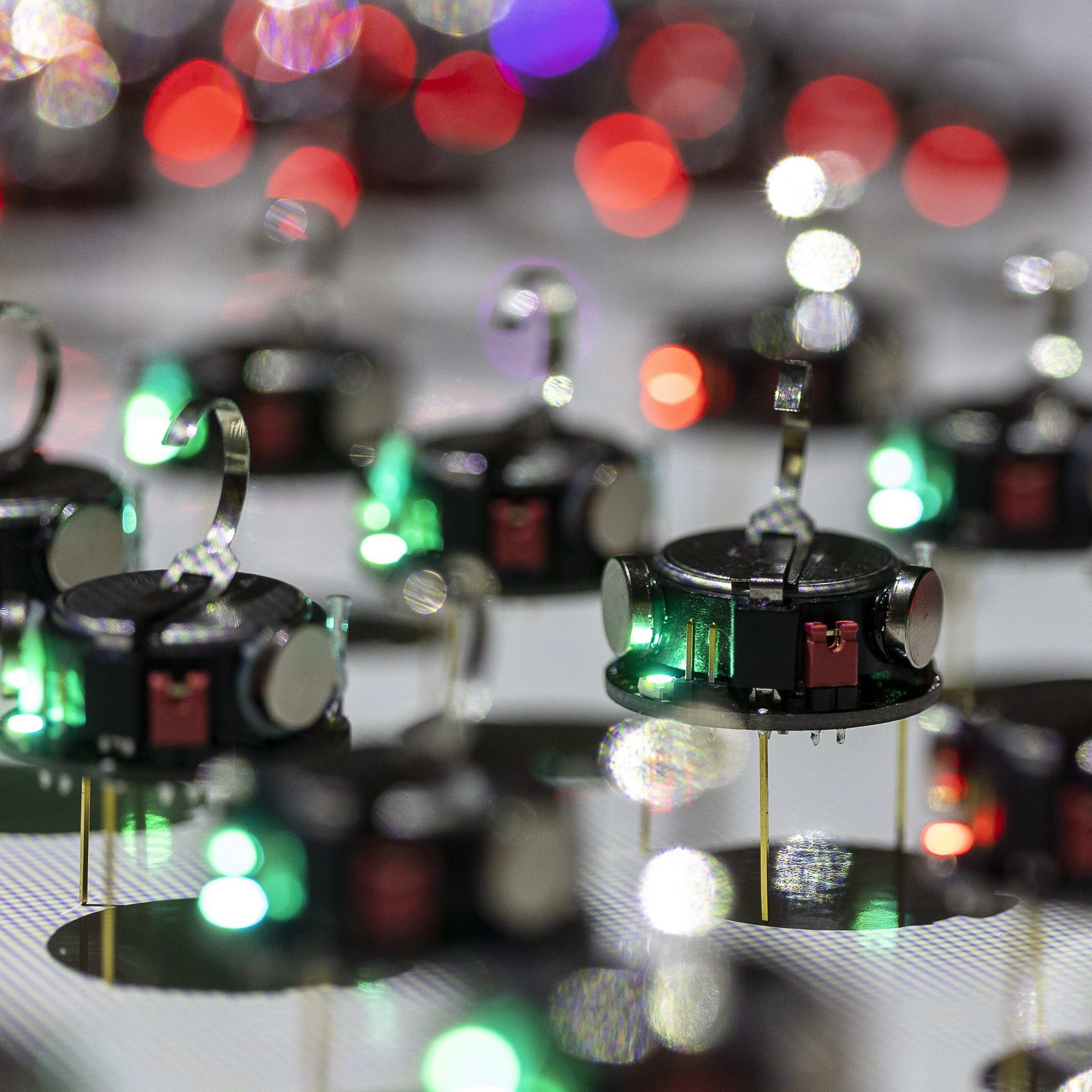
- This event has passed.
Andreagiovanni Reina (Université Libre De Bruxelles), “The Power of Inhibition for Collective Decision Making in Minimalistic Robot Swarms”
9 February, 2023 @ 10:00 am - 11:00 am
Abstract:
I investigate how large groups of simple robots can reach a consensus with decentralized minimalistic algorithms. Simple robots can be useful in nanorobotics and in scenarios with low-cost requirements. I show that through decentralized voting algorithms, swarms of minimalistic robots can make best-of-n decisions. In my research, I show that using a biologically-inspired voting model based on inhibitory signals, the swarm can collectively perform better and be more resilient against a minority of misbehaving robots than in models without inhibition. Our best-of-n decision algorithm can also be used for collective environmental monitoring. I will show that investigating these models can be very interesting and yield surprising results. As Anderson said in 1972, More is different. In our analysis, we found that limiting the communication range or the speed of the robots can improve collective performance in a range of relevant conditions. We explain the mechanisms of some of these phenomena with a combination of mathematical models and large-scale robot experiments.
This talk will take place in person at SCIoI.





